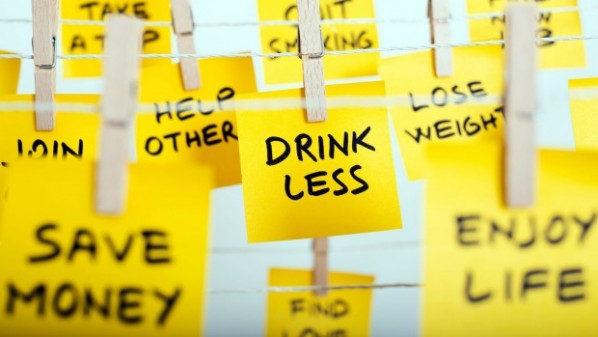Say No to New Year’s Resolutions
Orginally written for www.stuff.co.nz, published 30 Decemeber 2014
Resolutions at the start of a year always seem like a good idea. Who doesn’t like the idea of a new improved version of themselves? It is admirable to strive for continual improvement, right?
Realistically though, the odds are stacked against us. Only 8% of people actually achieve their New Year’s resolutions and one quarter of people always fail at their resolutions year after year. It’s no wonder we fail, changing habits of a lifetime is not easy and deciding to do so on a whim on December 31st with drink in hand will not make it any easier.
In previous years I’ve made resolutions too: find my abs (no, I don’t recall where I left them), be nicer to people, buy less stuff, live in a tidy house, eat less chocolate, find a man. And year after year I’ve failed. If insanity can be said to be doing the same thing over and over again and expecting a different result, maybe it’s time to reassess the process.
What’s going to make this year different?
Well, how about making lasting changes and decisions to improve your life at any time of year? Behavioural change is big business, just look at the health industry.
What I’ve come to understand is that preparation and planning is key, small actions are more sustainable than big ones and relapses are normal and do not signify failure.
How to make sustainable changes to improve your life at any time of year:
- Find your why. The reason you want to make your change must resonate with you – it’s your motivation. Extrinsic motivators (motivators that come from outside of yourself, like looking good for an event or being motivated to do something for someone else, like your partner) are typically less effective than intrinsic motivators in the long term. There’s nothing wrong with extrinsic motivators, they can be very effective in the short term. The question is then ‘do you want your change to be long term or short term?’ There’s no wrong answer but find the right ‘why’ and it will change your approach.
- Make your goal SMART. I don’t need to tell you about this one – we’ve all been through it – specific, measurable, achievable, realistic, timely.
- Take the easy wins. What are two things to get you closer to your goal that are easy to implement immediately? You’re that much closer to your goal already.
- Plan it out. If you’ve tackled this goal in the past consider why you failed and what you can do this time to navigate your obstacles. Preparation makes the journey less overwhelming and you’ll have an action plan ready to go when you hit bumps in the road.
- Incremental steps. Sometimes the end goal seems so big so break it down to manageable chunks. Remember to make your sub-goals SMART too. Celebrate your success as you reach each sub-goal to keep you going.
- Address your excuses. If you’re making excuses look to see what’s behind them. Your goal is yours and so are your excuses. Take responsibility.
- Relapses are normal and you’re not a failure. It just means it’s time to reconnect to your goal. If the goal doesn’t spur you on then maybe it’s not what you wanted, it needs redefining or you’ve changed direction. That’s OK too. You need to know what you want and you’re allowed to change your mind.
If you’re a serial resolution maker and not of the 8% that succeed maybe a different approach is all you need.



